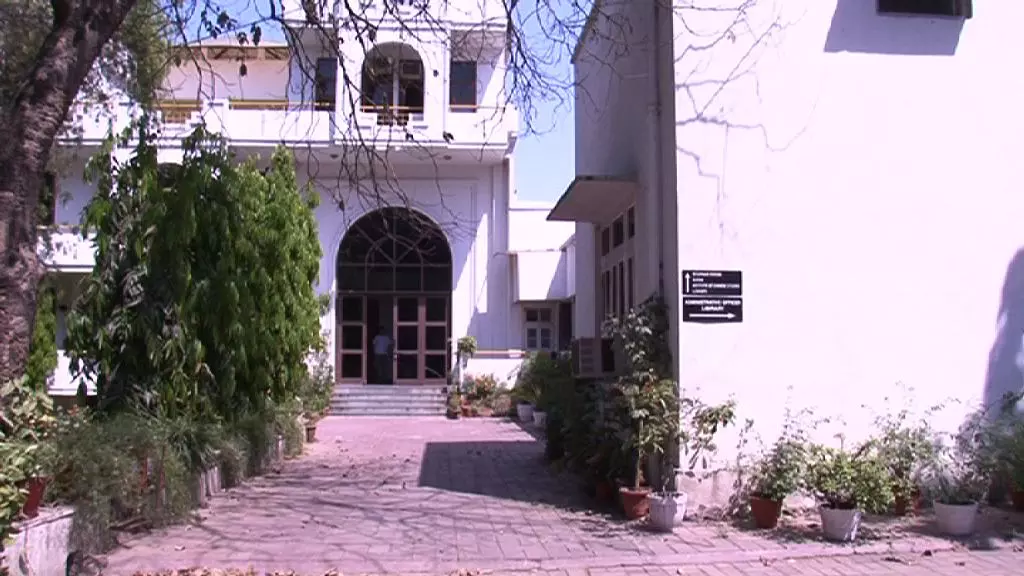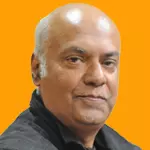
- Home
- India
- World
- Premium
- THE FEDERAL SPECIAL
- Analysis
- States
- Perspective
- Videos
- Sports
- Education
- Entertainment
- Elections
- Features
- Health
- Business
- Series
- In memoriam: Sheikh Mujibur Rahman
- Bishnoi's Men
- NEET TANGLE
- Economy Series
- Earth Day
- Kashmir’s Frozen Turbulence
- India@75
- The legend of Ramjanmabhoomi
- Liberalisation@30
- How to tame a dragon
- Celebrating biodiversity
- Farm Matters
- 50 days of solitude
- Bringing Migrants Home
- Budget 2020
- Jharkhand Votes
- The Federal Investigates
- The Federal Impact
- Vanishing Sand
- Gandhi @ 150
- Andhra Today
- Field report
- Operation Gulmarg
- Pandemic @1 Mn in India
- The Federal Year-End
- The Zero Year
- Science
- Brand studio
- Newsletter
- Elections 2024
- Events
- Home
- IndiaIndia
- World
- Analysis
- StatesStates
- PerspectivePerspective
- VideosVideos
- Sports
- Education
- Entertainment
- ElectionsElections
- Features
- Health
- BusinessBusiness
- Premium
- Loading...
Premium - Events

The CSDS — once accused by the Indira Gandhi government of being CIA agents in the mid-1970s — has perpetually been in the thick of democratic struggles
The Delhi-based Centre for the Study of Developing Societies (CSDS), a pioneering institution in the social sciences, which has chronicled peoples’ movements and human rights abuses over the decades, backed by unmatched data sets, is now in the worst crisis of its 62-year-old existence.
Last week, the government-controlled Indian Council for Social Science Research (ICSSR) issued a show-cause notice to CSDS, citing alleged violations of grant-in-aid rules related to misleading election data for the 2024 Maharashtra elections and biased interpretation of election data in Bihar.
The ICSSR posted on X, "It has come to the notice of ICSSR that an individual holding responsible position at CSDS, an ICSSR-funded research institute, has made media statements that had to be retracted subsequently citing glitches in data analysis regarding elections in Maharashtra."
Massive discrepancies
The controversy kicked off after Congress spokesperson Pawan Khera posted a graphic on X on August 18 and claimed massive discrepancies between the 2024 Lok Sabha and Maharashtra Assembly electoral rolls.
Citing Lokniti-CSDS data, Khera claimed that Ramtek and Deolali constituencies lost nearly 40 per cent of their electorate within six months and, on the other hand, Nashik West and Hingna gained between 43 and 47 per cent.
Sanjay Kumar, professor and co-director of Lokniti, a research wing at the CSDS, in his now-deleted X post on August 17 claimed that Nashik West's electorate had swelled from 3,28,053 in the Lok Sabha rolls to 4,83,459 in the Assembly rolls, which was around 47.38 per cent. For Hingna, he claimed the increase was 42.08 per cent.
Also read: Onus is on EC to prove voter ineligibility, not the citizen
These figures suggested abnormal and implausible growth. They were promptly amplified by Opposition leaders, including Khera, as they questioned the credibility of the Election Commission.
However, on August 19, Kumar issued a public apology through his X post, saying, "I sincerely apologise for the tweets posted regarding Maharashtra elections. Error occurred while comparing data of 2024 LS (Lok Sabha) and 2024 AS (Assembly). The data in row was misread by our data team. The tweet has since been removed. I had no intention of dispersing any form of misinformation."
Rich history
This august institution, founded in 1963 by the doyen of social scientists in India, Rajni Kothari, has a rich history as a pioneering institution in the social sciences, distinguished by its early empirical work on Indian politics, its ground-breaking election studies, and its commitment to understanding social realities outside of established university structures.
CSDS became globally renowned as the staging ground for fiercely independent academics, mostly political scientists, who challenged Western-centric models by examining Indian languages and non-European political thought, and through its Data Unit, created one of the world's largest archives of social scientific survey data on political attitudes.
The Centre — once accused by the Indira Gandhi government of being CIA agents in the mid-1970s — has perpetually been in the thick of democratic struggles. Its legacy lies in its unique, multidisciplinary approach and its continuous engagement with the everyday practices and political movements of ordinary people.
Renowned political scientist, Manoranjan Mohanty, wrote on Rajni Kothari’s death in March 2015: "As a theoretician of the Indian political system, with a powerful formulation of the 'Congress system', Rajni Kothari shaped the discourse on Indian democracy and its modes of addressing social diversity and political interests."
Also read: Vote theft controversy: Why the Supreme Court must step in
In its early years, the Centre gained recognition for its systematic studies of Indian politics, exemplified by Kothari's influential book, Politics in India.
In 1965, it became the first Indian organisation to conduct survey-based election studies, establishing a vital tradition that continues to this day – and the source of its current troubles, which the central government appears most keen to exploit.
Unique archive
The establishment of the CSDS Data Unit created a unique archive of social scientific survey data on political behaviour and attitudes, spanning decades of Indian elections and providing a rich resource for researchers worldwide.
Its multi-disciplinary approach has drawn scholars from political philosophy, sociology, anthropology, psychology, history, and media studies, enriching its research.
Included in this were some of India’s leading minds — DL Sheth, Ashish Nandy, Peter D’Souza, Giri Deshingkar, Bashiruddin Ahmed, and Mira-Sinha-Bhattacharjea. Other prominent faculty members who have shaped the CSDS's intellectual trajectory include Sudhir Kakar, Yogendra Yadav, and Rajeev Bhargava, who came in next. The current leaders, including Awadhendra Sharan, Deepak Nayyar (chairman), and Ramakrishna Ramaswamy, have continued to enrich this legacy.
Activist intellectual
At CSDS, Kothari spawned the tradition of the 'activist intellectual'. "Kothari played a prominent role in the civil liberty movement and upheld the rights of the marginalised groups who were subjected to state repression and violence by powerful interest groups," noted Mohanty.
Also read: Bihar electoral roll revision: Elitist and arbitrary, SIR!
Kothari’s role will be particularly remembered for his report on the anti-Sikh carnage of 1984, as head of the Peoples Union of Civil Liberties (PUCL).
With a vengeful BJP government breathing down CSDS’s neck, holding it virtually responsible for Rahul Gandhi’s anti-SIR campaign in Bihar, and INDIA bloc's proposed nationwide agitation on vote-chori (theft) that threatens to snowball into a larger stir, it will be a pity if such an august institution comes to be filled up by party hacks and faux-researchers.
(The Federal seeks to present views and opinions from all sides of the spectrum. The information, ideas or opinions in the articles are of the author and do not necessarily reflect the views of The Federal)


